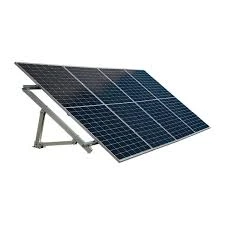efficiency of solar panels on cloudy days
The Efficiency of Solar Panels on Cloudy Days
Solar energy has gained significant popularity as a sustainable and renewable resource, providing clean energy for homes and businesses alike. One common concern regarding solar panels is their efficiency during cloudy days. Many individuals ponder whether cloudy weather can significantly impact the performance of solar panels and if investing in solar energy is worthwhile when there is a lack of direct sunlight.
Solar panels convert sunlight into electricity using photovoltaic (PV) cells. These cells are designed to harness photons from sunlight. However, during cloudy days, the intensity of sunlight is diminished, leading to a reduction in energy production. Despite this challenge, it may surprise many to learn that solar panels still produce electricity even on overcast days. The efficiency of solar panels under cloudy conditions typically ranges between 10% to 25% of their rated capacity. This means that while they are not as effective as on sunny days, they can still contribute to energy generation.
The amount of electricity that solar panels generate on cloudy days depends on several factors, including the thickness of the cloud cover, the angle of sunlight, and the type of solar panel installed. Certain panels, such as monocrystalline solar panels, perform better in low light conditions compared to polycrystalline panels, making them a more suitable choice for regions with frequent overcast skies.
Advancements in solar technology have further improved the performance of solar panels in less-than-ideal weather. For example, many modern solar panels come with anti-reflective coatings that maximize light absorption, even when diffuse sunlight is present. Additionally, bifacial solar panels, which capture sunlight from both sides, can enhance energy production under cloudy conditions by utilizing reflected light from surrounding surfaces.
efficiency of solar panels on cloudy days

Another significant advantage of solar systems is their ability to operate in conjunction with battery storage. Homes equipped with solar batteries can store excess electricity generated during the sunnier days for use during cloudy periods or at night. This capability enhances energy resilience and allows homeowners to rely less on grid electricity during unfavorable weather.
Furthermore, solar panels can contribute significantly to energy savings over time, despite occasional drops in efficiency due to cloudy weather. The financial benefits of installing solar panels often outweigh the drawbacks of lower energy production on those gloomy days. Many regions offer incentives, tax credits, or rebates for solar installations, further making solar energy an appealing option for homeowners looking to reduce their electricity bills.
It's also essential to consider the long-term perspective; while cloudy days may reduce solar panel efficiency, they are often interspersed with sunny periods. Over a year, solar panels installed in areas with variable weather patterns typically generate more than enough energy to compensate for the lower output experienced during cloudy days.
In conclusion, while solar panels are less efficient on cloudy days, they still produce a measurable amount of electricity, making them a viable source of renewable energy year-round. With ongoing advancements in technology and the option for energy storage, the benefits of investing in solar panels continue to outweigh the associated challenges of cloudy weather, ensuring households can enjoy the advantages of solar energy regardless of the forecast.
-
Understanding the Advantages of Solar String Inverters for Your Energy SystemNewsApr.29,2025
-
Choosing the Right PV Inverter: A Comprehensive GuideNewsApr.29,2025
-
The Future of Solar Power: Exploring Bifacial Solar PanelsNewsApr.29,2025
-
The Complete Guide to Solar Panels: Efficiency, Cost, And InstallationNewsApr.29,2025
-
The Best Options for Efficiency and Cost-EffectivenessNewsApr.29,2025
-
Harnessing the Power of Off-Grid Solar Inverters for Energy IndependenceNewsApr.29,2025







